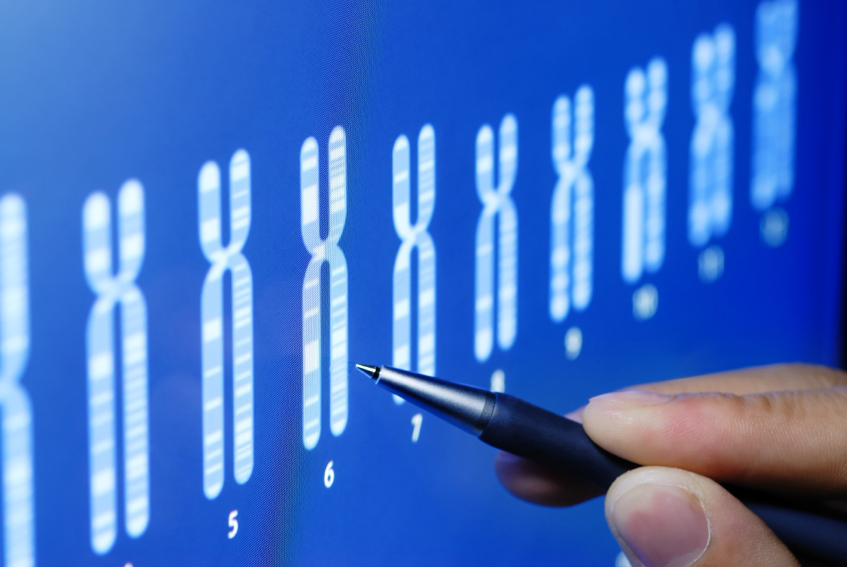In less than one month Down syndrome has become a relentless subject. After the opinion 120 of the French National Consultative Ethics Committee (CCNE) giving its blessing to the new prenatal diagnosis (PND) test for Down syndrome, foetuses carriers of this pathology became through a ministerial order of 12th June 2013 a national target. For each pregnancy, from now on, the data relative to PND for Down syndrome will be centralized. It is with a higher magnitude that tracking Down syndrome foetuses carries on without worrying. The European report Peristat which ranks France as the leader of stillbirth rate (1) did not even contributed to question on French prenatal medicine. The French eugenic system seems to be inevitable.
The CCNE validates the eradication of foetuses with Down syndrome.
On 25th April 2013 CCNE rendered its opinion 120 called “Ethical questions associated to the development of foetal genetic tests on maternal blood”. In this opinion, the CCNE expresses in favour of the new Non-Invasive Prenatal Diagnostic (NIPD) test, already marketed by some European countries, which allows determining from a simple blood sample and from the 10th week of pregnancy if the foetus has Down syndrome. The CCNE describes this test as “more efficient” to screen the foetuses with Down syndrome, as “earlier” because it allows avoiding a late MTP (2) more traumatic, and as “less dangerous” because it would avoid proceeding to an amniocentesis, at the origin of miscarriages. The CCNE is part of a qualitative analysis of the technique. Jérôme Lejeune Foundation reports it: “the ethical appointment is missed […] the CCNE validates the modernization of the eradication of people with Down syndrome”. The opportunity to question on prenatal medicine, tracking the disability, and the eugenics of people with Down syndrome was required. The CCNE denied it showing contempt for ethics to the benefit of the technique. The Committee to Save the Prenatal Medicine is “shocked” by this opinion, and refuses “the state of things, the capitulation on the ethical level, and the powerlessness against the violence of the market”. Because once again, how can we not think about the involved financial issues? The test could be proposed systematically to the 820,000 pregnant women per year. In this case the cost will be equal to €1 billion specifies the CCNE (sic).
This new test worsens the current mechanism the CCNE cannot ignore: prenatal diagnosis of Down syndrome = termination of pregnancy. The single concern emitted by the CCNE lies in the possibility this new test opens to screen a high number of other foetal pathologies. The CCNE worries rightly of a future “scientific organization of the selection of life” (3). As if Down syndrome was not already the perfect illustration…
The ministry of social affairs and health organizes the stigmatization of Down syndrome.
Just one month after the opinion 120 of the CCNE, the minister of health organizes (4) a system of national record-keeping of the 820,000 annual pregnancies of French women. All data relative to Down syndrome screening and diagnosis tests, to their results, to the issues of pregnancy will be registered and transmitted to the Agency of Biomedicine (ABM). This order establishes an obligation for practitioners to transmit a defined list of data to biologists as well as an obligation for biologists to transmit all these data to the ABM. This one is then in charge of “assessing the screening of Down syndrome”, and to retransmit yearly a part of these national results to organizations like Haute Autorité de Santé (National Authority for Health), the Agence nationale de sécurité du médicament et des produits de santé (National Security Agency of Medicines and Health Products), the association des biologistes agréés (association of certified biologists)…For sure, practitioners were already obliged to transmit some data relative to the NPD for Down syndrome to the regional network of perinatal care. What changes is the national character of centralization of these data which will be more precise and which will be subject to an assessment by the ABM, then retransmitted to practitioners. The order establishes a national stigmatization of people with Down syndrome.
The European report Peristat revealed a terrible French singularity.
The CCNE or the Minister of Social Affairs and Health could have been sensitive to the European report Peristat delivered on 27th May 2013. This report ranks France among the bad pupils as it has the highest rate of stillborn babies, of which 50% are attributable to MTP. The Inserm does not hide it, this sad score is the consequence of a great policy of prenatal screening. Another consequence of this prenatal policy: France is the European leader of the elimination of foetuses diagnosed with Down syndrome. We can be surprised of the absence of comments from our politicians, so worried about the rank France has in Europe on a lot of other subjects. The prenatal accompaniment of the disability is better managed in our neighbours and the French situation should be a matter of worry. The French eradication of foetuses with Down syndrome is so advanced that it does not question?
Is the French eugenical system inevitable?
Then should we think that the French eugenical system is irremediable? Dr Patrick Leblanc (5) does not think it. For him the example of Japan which lived under the power of a law called “Eugenical protection” is remarkable. Finally abolished in 1996, this law authorized the abortion of mentally disabled people, patients with genetic diseases… Today Japan knows to regain the ethical questioning, which leads it to be prudent faced with NIPD.

